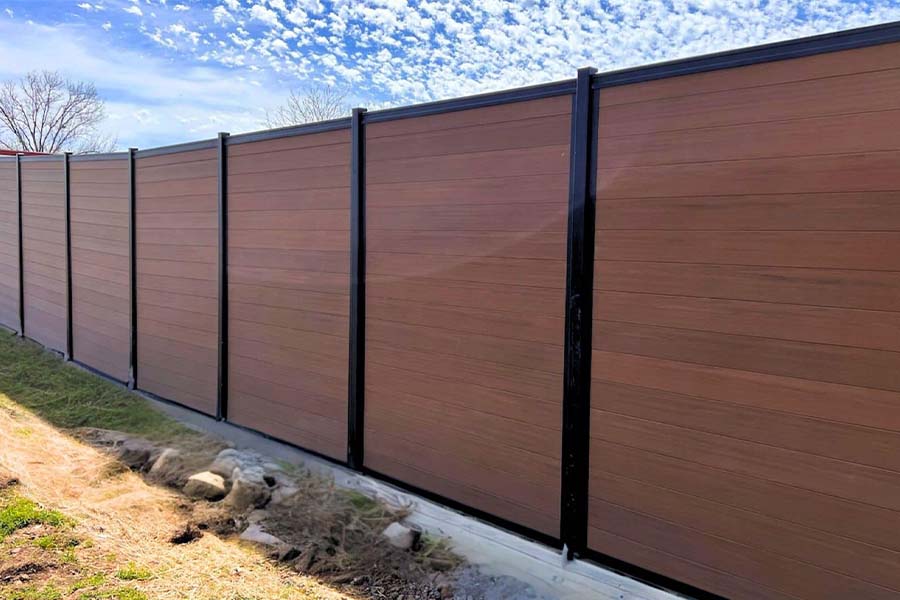All Categories
Featured

When planning to set up a fence around your residential or commercial property, one of the very first steps is recognizing the permitting demands in your location. While the process may seem uncomplicated, neighborhood guidelines can vary greatly relying on where you live. Securing the proper authorizations before starting the installation is critical to prevent prospective penalties, conflicts with next-door neighbors, and even having to remove your fencing. Below's what you need to understand regarding obtaining the essential permits for your fence installation.
Why Do You Need a Permit for a Fencing? An authorization is often needed for fence installments to make certain compliance with neighborhood building codes, zoning legislations, and safety and security guidelines. Permitting helps local authorities maintain uniformity in neighborhood aesthetics, safety, and environmental factors to consider. It likewise ensures that the fencing does not conflict with utility lines or public spaces, which it sticks to elevation and border limitations.

Usual Permits Needed for Fencing Setup. Structure License. Many areas require a building license for fencing setup, specifically if the fence exceeds a particular elevation (usually over 6 feet) or is made from non-standard materials. This license makes sure that your fence adheres to regional building ordinance. In some areas, the structure division will certainly check the site to ensure that the fence satisfies security and structural criteria.
Zoning License. Zoning authorizations are designed to guarantee that your fencing sticks to neighborhood zoning regulations, including problems from building lines, easements, and rights-of-way. Zoning regulations differ from city to city, and in some instances, your fence may need to be established back a certain number of feet from the pathway or road. A zoning license might additionally be necessary if your fence is in a historical district or other specially assigned areas.

Fencing License. In some places, a certain "fence license" might be called for. This is generally needed when developing a fence for homes. The regional federal government may define the elevation, material, and style of the fencing to ensure it mixes well with the bordering area. Some cities limit chain-link fences in front yards or have certain guidelines for privacy fences.
HOA Authorization. You might need authorization prior to mounting a fence if your home is part of a home owners association (HOA) HOA guidelines frequently include particular regulations about the kind, elevation, color, and materials for fences to keep the area's appearances. HOA policies can be more stringent than city codes, so always examine their standards prior to moving on.
Easement or Utility Licenses. If your fencing will be near or across an easement (such as an utility easement), you may require to obtain authorization from the utility company or other entities that manage the land. This is particularly important if you plan to mine fence posts, as it ensures you won't harm below ground utilities like power, gas, or water lines.
Just How to Figure Out What Permits Are Called for. The most effective way to establish which permits are required for your fencing installment is to call your regional structure department or metropolitan office. They can provide you with specific information concerning requirements in your area. Here are a few steps you can require to discover:
Inspect the City or Area Web site: Many city governments supply information about fencing installation permits online. Look for building or zoning sections on their site. Call or Browse Through City Government Offices: If the information is not readily available online, calling or checking out the local office personally can clarify what's required. Speak With an Expert Contractor: If you're unsure or overwhelmed by the procedure, a regional service provider or fence installation company can aid in navigating the allowing process, as they recognize with neighborhood guidelines. What Happens If You Do Not Get a License? In lots of locations, you could encounter fines, and your fence might be ordered to be gotten rid of. Permitting makes certain that your fence is certified and assists prevent future problems.
Verdict. Prior to setting up a fence around your residential or commercial property, it's vital to examine whether an authorization is needed in your area. Building permits, zoning permits, HOA approval, and energy approvals may all play a duty in your fencing installation process. Taking the time to research study and acquire the required permits will certainly not just guarantee that you're complying with local guidelines, but also aid secure your investment and keep the integrity of your residential or commercial property.
Latest Posts
Uncover Save Big on Car Maintenance with Montclare Auto Repair’s Exclusive Deals
Published May 26, 25
1 min read
How Routine Car Maintenance at Montclare Auto Repair Saves You Money
Published May 26, 25
1 min read
Improve Your Home's Exterior with Weathercraft's Siding Solutions
Published May 24, 25
1 min read
More
Latest Posts
Uncover Save Big on Car Maintenance with Montclare Auto Repair’s Exclusive Deals
Published May 26, 25
1 min read
How Routine Car Maintenance at Montclare Auto Repair Saves You Money
Published May 26, 25
1 min read
Improve Your Home's Exterior with Weathercraft's Siding Solutions
Published May 24, 25
1 min read